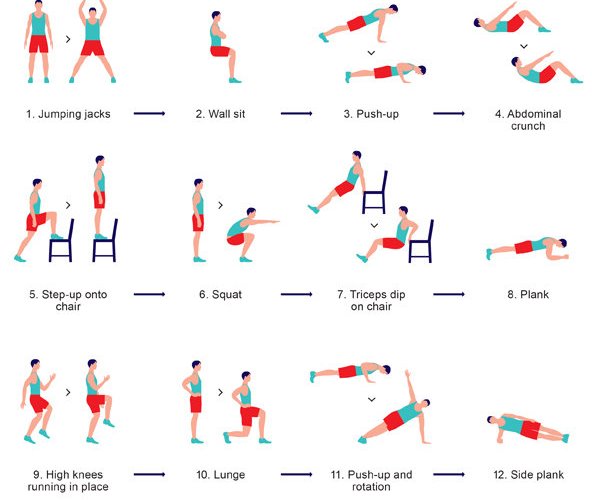A couple of years ago the New York Times wrote about a game changing workout that would get you fit in only seven minutes. Yes, rather than endure 30-60 minutes of moderate intensity physical activity most if not all days of the week, seven minutes every now and then was suddenly enough to cure that heart disease of yours. The strange thing was that the New York Times, a relatively reliable source, had claimed that the workout was scientific.
This contradicted everything I learnt during my seven years at university. Therefore, today I ask in an outraged, yet concerned voice: is the scientific seven minute workout actually scientific?
Why it might be scientific:
Well the seven minute workout was first brought to the light in an article in a scientific, scholarly journal in 2013. For those of you who don’t know, this is basically a book full of studies and scientific articles that nerds who like exercise read – I am one of these nerds. The article did a review of the scientific studies to date on high intensity interval workouts. At the end it outlined an extremely high intensity, bodyweight exercise regime that could potentially lead to results equivalent to hours of endurance and resistance training combined, based on said studies. This is all good, well and even awesome, but there are a couple of barriers before we can call the seven minute workout truly scientific.

The first is that the studies referenced in this article utilised high intensity training of longer durations. Essentially meaning there is no evidence from this article that seven minutes is long enough for a workout.
The second is that the authors of the article advocate performing the article two to three times, suggesting even they’re not sure whether seven minutes is enough.
The third and perhaps the final, is that they did not directly test the effects of their seven minute workout and workouts that only used a bodyweight circuit. That was until now……

Is it actually scientific?
Yes, the year of 2015 brought the first, and as far as I’m aware, only study directly assessing the effects of the seven minute workout. Nervous? I am.
The study had 96 university students, for eight weeks, perform either: 1. Their normal exercise regime; 2. Seven minute circuit workouts; 3. Four weeks of seven and four weeks of 14 minute workouts.
Improved muscular endurance (number of push-ups) in both the seven and 14 minute group was observed compared to the normal exercise group. The same was true for strength, but only in male participants. Finally, aerobic fitness was also assessed, but only found to have been increased in women in the 14 minute circuit training group.

Is it healthful?
The scientific seven minute workout is slightly healthful. Well, it’s probably better than doing nothing. It will likely improve your muscular endurance and perhaps strength – depending on what sex you are; however, it may not be enough to enhance cardiorespiratory endurance. Further, there are many other variables that exercise alters, that have not been assessed.
Based on the the paper I brought up initially, high intensity workouts of longer duration appear very effective, but to date there is no proof seven minutes is enough.
I hope this has been healthful!

Isithealthful
I hold a Doctor of Physiotherapy, Bachelor of Exercise Science and am a qualified personal trainer. I have extensive clinical and research experience and a strong passion for all things health. This has driven me to write the blog: Is it healthful, in order to analyse sound scientific research to determine if a product, service or intervention is healthful, or simply a waste of money or time.







